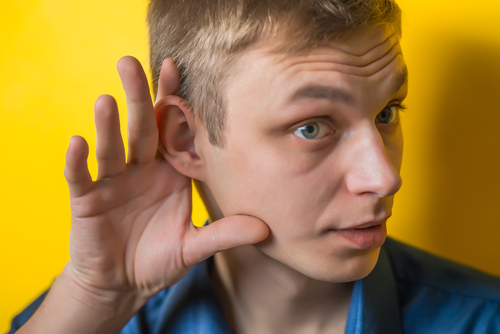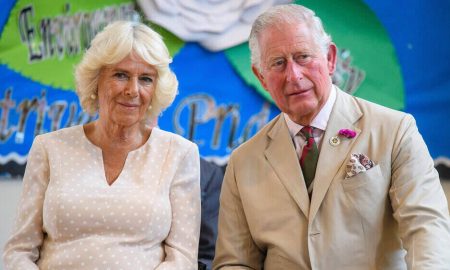
How to Be a Better Listener

There is a need for a person to learn cognitive skills as they grow up. One of the skills is listening skills. There is a need for one to pause, be silent, and listen to what other people are saying. As you listen, your mind works to comprehend and interpret the signals you receive in order to come up with a response that is suitable to the situation at hand. You may think that listening is an easy thing to do, but many people struggle to listen effectively.
In fact, the number one reason why miscommunication and chaos spur is because of poor listening skills. Instead of activating their active listening skills, most people only use the passive ones. They only hear the things they want to hear, shunning anything offensive or what they deem “unfavorable.” While it is only natural for our defense mechanism to kick in when faced with negativities in life, not all of them are bad. There is a need to be open-minded and to learn how to accept criticism. All of us need to hear the other perspective of the story in order to put all the pieces together and assess the situation clearly.
Here are the things you need to work on to improve your listening power.
“One of the most sincere forms of respect is actually listening to what another has to say.” — Bryant H. McGill
Paraphrase and make a brief summary

Rawpixel.com/Shutterstock
This may seem simple. After all, it is the essential thing people learn when they start harnessing their listening skills. However, that’s not always the case. You will be surprised at how much you can learn by paraphrasing and making a brief summary of what you have just listened to. Paraphrasing refreshes your mind and organizes the information it just received. Moreover, the speaker will be grateful to you for paying attention.
This also gives some room to clear any misunderstanding the moment you interpret the information in your own perspective. Just imagine how much it will save the both of you headaches and time!

Dmytro Zinkevych/Shutterstock
Always Maintain Eye Contact
One non-verbal sign that signifies that you are listening intently to what the speaker is saying is eye contact. Eye contact means that you are paying attention to the speaker and shows your respect to the speaker. It means that as a listener, you are giving the speaker your undivided attention and that you value what the information that they are sharing. This is the best form of respect you can give back to your speaker. You need to think that your speaker spends a lot of time in order to relay things to you. The least you can give back is to listen. However, make sure that your eye contact is not too intimidating. It is best to maintain a warm, firm, and gentle eye contact so that the speaker won’t feel intimidated or embarrassed.
Keep Your Gesture Open and Welcoming

michaeljung/Shutterstock
Having an open and warm gesture helps you to communicate with your speaker better. Try resting your head on one of your hand to show that you’re listening intently. It also indicates that you welcome whatever the speaker has to say and you’re also open for any questions that may arise, which may leave room for discussion.
Other effective gestures include nodding and smiling. Every time you agree with what the speaker is saying, take some time to appreciate it and nod. Nodding not only shows that you are paying attention to the presentation, but it also helps boost the speaker’s confidence. It’s an affirmation that they are doing a great job on their task. And of course, smiling lifts up everyone’s mood and make the atmosphere lighter. This also allows for a warm and productive discussion to come in instead of some dead and awkward tension filling the room.
More in Inspiration
-
`
Camilla Bowles & Prince Charles Ask People to Remember The Elderly This Holiday Season
Every year as the holiday season begins, we rush to the shopping centers and wait in long queues just to grab...
December 27, 2021 -
`
Baby Mama Olivia Munn Welcomes First Child With John Mulaney
You might think that this is wholesome news and there is nothing problematic about it – but guess again! As it...
December 23, 2021 -
`
Being A Feminist – The Dad Version
Feminism – an ideology that works to establish social, personal, economic, and political equality of humankind. In this day and age,...
December 22, 2021 -
`
Starting a Business Can Be Overwhelming–Here’s How You Can Get Over Your Fears & Start Building Your Company
Successfully building a business from the ground up, is not an achievement that all people can claim to have done. It...
December 22, 2021 -
`
Too Busy Working as a Corporate Executive to Manage Your Finances? These Are The Simple Steps You Can Take Today
Corporate executives often find themselves in an interesting predicament. After they’ve managed to put in the work to nab the high-paying...
December 21, 2021 -
`
Leonardo DiCaprio Buys a $9.9 Million Beverly Hills Mansion
Leonardo DiCaprio is no stranger in the world of Hollywood – and if you don’t know him, what have you been...
December 17, 2021 -
`
Kevin Hart Drops $7 Million on The Property Next to His Calabasas Mansion
People often say that kindness is making someone laugh, even if it’s only for a moment. Well, going by that logic,...
December 8, 2021 -
`
Two Decades Worth Of Jennifer Aniston’s Real Estate Grabs – Take A Look!
Jennifer Aniston! Who doesn’t know and love the superstar who breathed life into iconic characters like Rachel Green, Rosie Dickinson, Rose...
December 7, 2021 -
`
Let’s Hear it For The Long-Awaited Film, House of Gucci
Have you watched the House of Gucci yet? The movie has got to be one of the most anticipated ones of 2021 –...
December 1, 2021















You must be logged in to post a comment Login